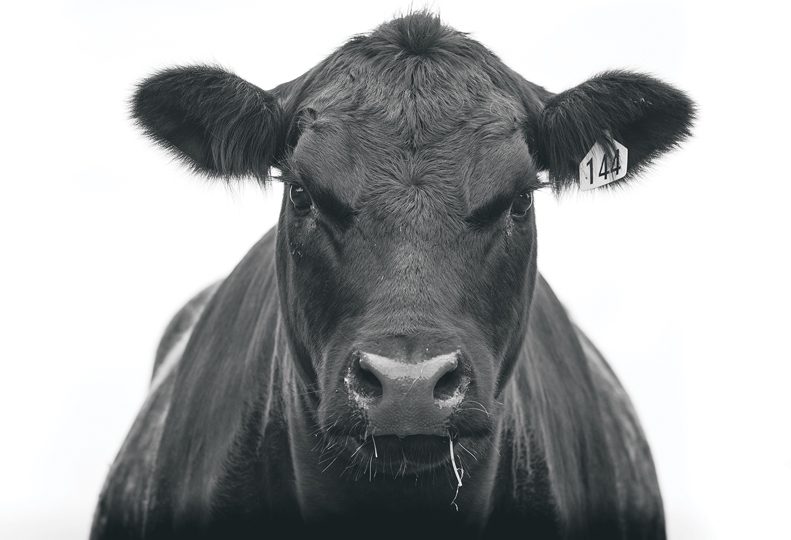
Home » County works to allow more slaughterhouses
County works to allow more slaughterhouses
Limited number of meat processing facilities leads to high demand

January 18, 2024
Spokane County is in the process of removing regulatory roadblocks to allow small-scale, fixed-location meat processing facilities on agricultural-designated land.
“There’s nothing in our code that actually allows for it,” says Spokane County Commissioner Josh Kerns, who represents the largely rural northern portion of the county. “It’s just something that we haven’t been presented with.”
Currently, the Board of County Commissioners is awaiting policy recommendations from Scott Chesney, the county’s director of planning. The recommendations are expected to be delivered within the next couple of weeks, Kerns says.
While the board is waiting on those recommendations before it lands on a specific definition for what would be considered a small-scale slaughterhouse, Kerns says proposed facilities would be intended for individual consumer use, like by farmers or ranchers wanting their own livestock butchered for themselves, or for direct-to-customer operations, as opposed to larger operations that sell to stores.
“They’d be slaughtering meat for the customer who already owns their cattle,” says Kerns. “That’s where the bottleneck is.”
Customers of such facilities would be paying just for the service of slaughtering the animal, rather than for the animal itself.
Kerns says a Deer Park-area constituent of his reached out to him a couple of months ago asking for him to look into zoning regulations regarding small-scale meat processing plants. She said it is difficult to reserve services from mobile butchers because there aren’t enough of them in the area.
“A constituent saw that there was a need that our zoning didn’t accommodate,” Kerns says. “There’s a great deal of demand, but there’s not a lot of supply as far as space.”
People often have to travel out of the area to get meat processed, Kerns says.
Frankie Browning, owner of Spangle-based Browning Beef LLC, says, “It’s an issue for all of us who are trying to make a go of it as small producers. There are a lot of small producers that would support it.”
Browning hasn't been involved in pushing for changes to the zoning regulations, but she says her company would benefit from there being more meat processing facilities nearby.
About half of Browning Beef's sales come from selling locker beef—beef that is sold by the whole animal or a portion of the animal—which is the type of operation these changes to zoning laws could benefit. If there were more meat processing facilities, Browning says she may even increase that side of her business.
“It would be a game changer," Browning says. "It’s been so hard. It feels like we shouldn’t have made it, because it’s been so difficult to make it all work as a small producer in this area.”
The Washington state Department of Agriculture grants three types of meat slaughtering and processing licenses.
Custom Farm Slaughterer licenses are granted to mobile slaughtering operations that travel to farms to slaughter animals for their owners on location, according to a presentation at a strategic planning meeting. There are six operations in Spokane County with this type of license, the presentation shows.
Custom Meat Facility licenses allow for the cutting, wrapping, aging, and freezing of meat from slaughtered animals. There are six of these licenses in Spokane County, and they appear to be attached to the mobile slaughtering operations, the presentation shows.
Custom Slaughter Establishment licenses are for slaughtering operations at fixed locations, none of which exist in Spokane County due to regulatory roadblocks.
Patrick Bell, director of communications for Spokane County, raises cattle on his family’s farm. In the strategic planning meeting, Bell said there would be a lot of support from farmers and ranchers in Spokane County to have fixed-location meat processing facilities.
“The mobile units are few and far between and a lot of those are family companies not continuing generationally,” Bell said.
Amendments to zoning laws that would allow for fixed-location facilities could lead to new meat processing businesses, Kerns says. It would also allow farms and ranches to expand their operations.
Browning concurs, saying, “It’s to the point where some people go out of business. The demand for people wanting locally sourced proteins is not going anywhere. As a county, if we could jump on board with making that happen, it would take off.”
Regulatory roadblocks are the result of a simple oversight, Kerns says. He says he isn’t aware of or expecting any type of opposition regarding the changes.
“I would be surprised if anybody had any issue with this,” Kerns says. “This is very closely related to farming operations.”
To include slaughterhouses as allowed uses in agricultural zones would require a text amendment to zoning codes, Kerns says. That would require a public hearing before it goes back to the commissioners for final action, he says.
“I think we’ll be able to make this happen,” says Kerns.
Kerns says he hopes that the board will be able to take action within a couple of months.
Latest News Government Instagram
Related Articles
Related Products
Related Events





